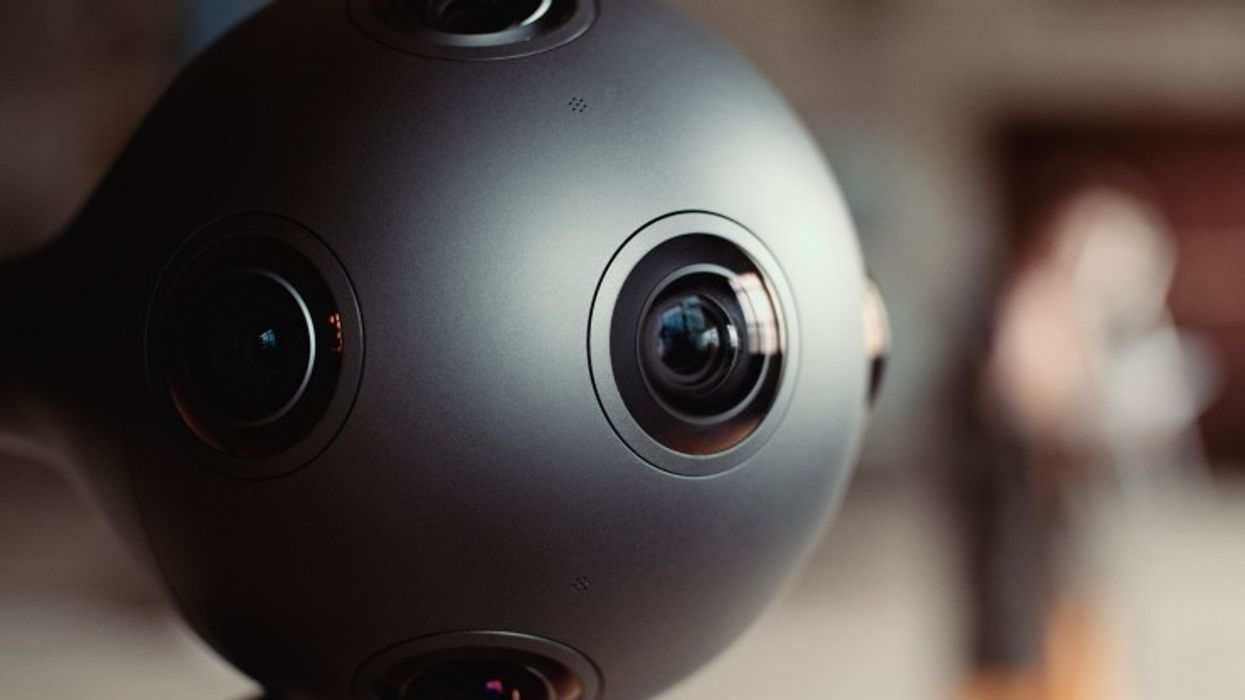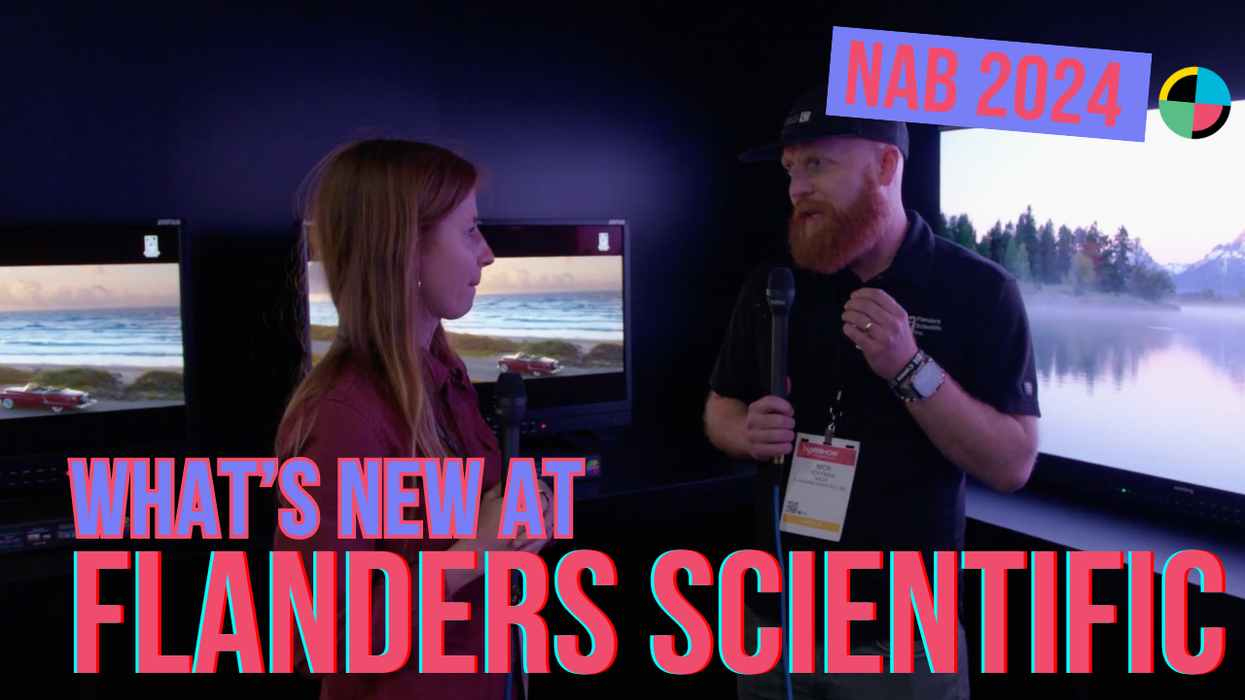Biggest Tech Disappointments of 2017
Every year, there are a few pieces of kit that just underwhelm filmmakers, and here are ours.

2017 was mostly an exciting year but we did have a few real "come on, really?" moments in gear and tech, and here they are:
VR
This was the year folks started to say "Wait, VR/360° still hasn't happened in a real way yet?" While Oculus sales remain low (despite price cuts), and the content just doesn't seem to be there, the clearest moment in VR's lackluster performance was the end of life for the Ozo from Nokia. This camera was hands down the leader of capture in that space, used for short films and experimental docs and livestreaming red carpet events.
Nokia is one of those oddball companies (they started making tires!) that it's hard not to root for, and the Ozo seemed like a nice pivot from the company as its handset business died. Now Nokia is pivoting hard to healthcare tech, and leaving VR behind. While there are tools to be excited about (the Insta360, among others), the end of the Ozo is a bummer.
Apple

Apple practically deserves its own category in tech disappointments for the year. After last year's winner of a loser the 2016 Macbook Pro (which, with shipping starting last November, continued to disappoint us all year), Apple continued the misfires this year with two major disappointments; the expensive iPhone X, and then the end of life for Final Cut—not to mention admission that the company has purposely slowed down old iPhones to encourage the purchase of new ones.

First the iPhone X. The notch. The price. What more do you have to say? That notch is going to be just fine in apps that are designed to fit it, and will even work well on the home screen, but for filmmakers, who are obsessed with the precision of our frames, it's going to either lead to cutting into your perfectly composed shots, or shrinking the image down on the screen wasting valuable screen real estate. All that, for $999? Apple hasn't come out with a compelling reason to upgrade its phones since iPhone 6S, and no matter good the camera is (and tests say that it's great), it's not as good as the Google Pixel 2. Or the countless other cameras you could buy for a thousand bucks.

End of life comes for everyone and everything, but the end of FCP-7 is a particular bummer for all of us who built our careers initially on the robust, simple, nearly ubiquitous product. It's also a real bummer for filmmakers with projects that are still working in 7, which is not an uncommon situation for documentary filmmakers who might spend a decade editing and might have started before 7 was even released and upgraded into it. Of course, if you don't update your OS, you can keep using 7, but if you stop updating your OS you'll lose out on security updates, which leads us nicely to our next disappointment.

Hackers
This was a big year for hackers breaking in and getting content from major providers before it was ready, and it's hard not to be disappointed. To be clear, we aren't placing all the blame on Larson Studios, but allow us to be innocent enough to be disappointed first off that hackers, looting the internet for ransomable content, exist at all. Secondly, we're disappointed that the tech exploits exist and that major tech companies abandon software such that they can be exploited.
It's clear that Apple and Microsoft really wish we would all just update our OS to the freshest version and they didn't have to keep patching older OS versions as well, but the reality of the situation is sometimes we love software that isn't going to update, and we are disappointed that the big platforms don't spend as much time on the security of old platforms as we would like.

Media Composer First
Avid Media Composer remains a dominant tool for studio and television productions. Despite a huge push from both Blackmagic and Premiere in 2017 into shared user workflows, Avid is the king of the hill when you need five people working on a project at once. The weakness in the system is getting younger filmmakers using MC, when they can get Premiere for cheap or Resolve for free.
To combat this, Avid has come out with Media Composer first, which is totally free. Why is this a disappointment? Well, every time you have a distinction between free/paid software, it's tricky to find the key tools to hold back for the paid version to drive sales while allowing the free version to be functional enough that people adapt it. With Resolve, the paid studio version is needed for power tools like noise correction, but is fully functional as an editor or color corrector in the free version.
Media Composer first is restricted in tracks and exports, which are smart restrictions for freeware. But you cannot move a project back and forth between the two, which cripples the software. If you are a small facility, and you occaisionally need to ramp up to a bigger number of editors for a project, the ability to bring in a few AEs who show up with software ready to go, especially at the last minute. Every freelance editor has Premiere on their laptops and can come in, set up on the conference table, and get moving. By preventing that ability with Media Composer it makes the software far less useful to learn for young editors hoping to get freelance work. Yes, of course, you could go to the website and buy a few more one month licenses on Media Composer if you needed, but it's just that sort of barrier that helps the small, nimble companies swap over to Premiere.

Canon 6D Mark II
When the much anticipated 6D upgrade came earlier this year, we were disappointed by the lack of one seemingly key ingredient: the ability to shoot in 4K. If you were wondering whether Canon decided to focus squarely on its still customers with its DSLR offerings, now you know for sure. With the Panasonic LUMIX GH5 coming in at the same price point, and offering 4K, video shooters may abandon Canon DSLRs for good.
But don’t take our word for it. Our comments on the 6D posts and social media lit up around this issue, summed up nicely by reader John Haas: “$2000 is a good amount of money to me at this point in my career, and many of the readers here, and I'm not going to invest that if the product won't give back in its value. A 1080p camera in 2017 won't give back or allow for growth with it for $2000.”

 No Film School's coverage of
No Film School's coverage of 









